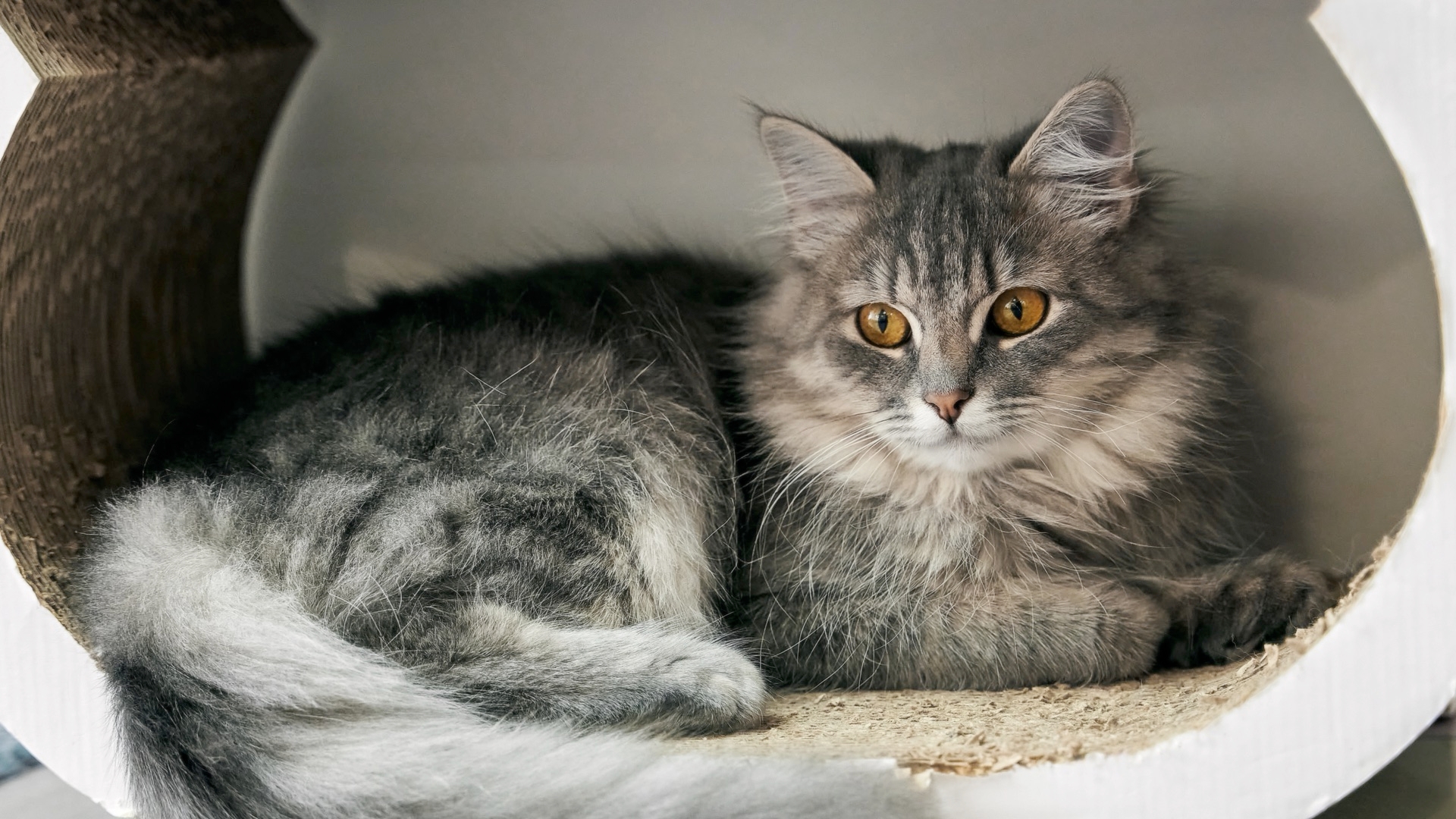The Shy And Fearful Cat:
Summary:
Cats are like people. They are all different. Like people, it is difficult to tell how they will turn out as adults. There are, however, some important factors influencing whether or not a cat will extend that basic shyness into fear.


Cats are shy by nature. If your rambunctious, extroverted kitten has grown into a shy adult cat, it may be a normal personality development for her.
Cats are like people. They are all different. Like people, it is difficult to tell how they will turn out as adults. There are, however, some important factors influencing whether or not a cat will extend that basic shyness into fear.
Cats are creatures of comfort and of the status quo. They do not respond well to changes in their environment. Their usual reaction to an unwelcome change will be to distance themselves. They may retreat to a hiding place or, if pushed, they may react aggressively. For a cat, hiding is a normal response to a new or frightening situation.
What can be done about a cat that responds that way? It is best to let her come out in her own good time. If a cat is forced to be social, she may become aggressive and start biting and scratching.
Some cats are shy and fearful because of an illness. If this is new behavior, have her checked by a veterinarian.
There are cats that respond to a new person in the household, be it an adult or baby, by running and hiding. Introducing a new dog or new cat to your household might elicit the some response. If yours is an outside cat she may have been startled by a stranger or an animal, or she may have lost a good fight. These experiences may result in a fearfulness that will convert her to a shy-acting inside cat. A sudden loud noise like thunder, a firecracker, or an engine backfire might send your cat under the bed for months.
A phobic shyness indicates that proper socialization did not take place when your cat was an unweaned kitten. Proper socialization occurs when a very young kitten is handled and cuddled by all kinds of people, sniffed and touched by dogs and cats, and exposed to all kinds of noise out there in the world.
Things are not as frightening if they have been experienced in the comfort and security of one who loves you. Perhaps this did not happen for your cat, and now she is shy and fearful. What can be done about this?
Do not force your adult cat or kitten to come out and greet strangers. Give her time. When she does come out, give her a delicious food treat. Coax her out of hiding by leaving a trail of food to her bowl. Move the bowl a little farther out each day. Talk in soothing, cooing tones to her. Once she does come out, let her greet strangers on her own terms. Praise your shy and fearful cat for every inch of progress. Reinforce the praise with a great food treat. In time, she will accept you. She may always run and hide when others are around. That is this cat's personality, and she will be happy in her own way. The challenge is for you to complete your commitment of love and care for her.


